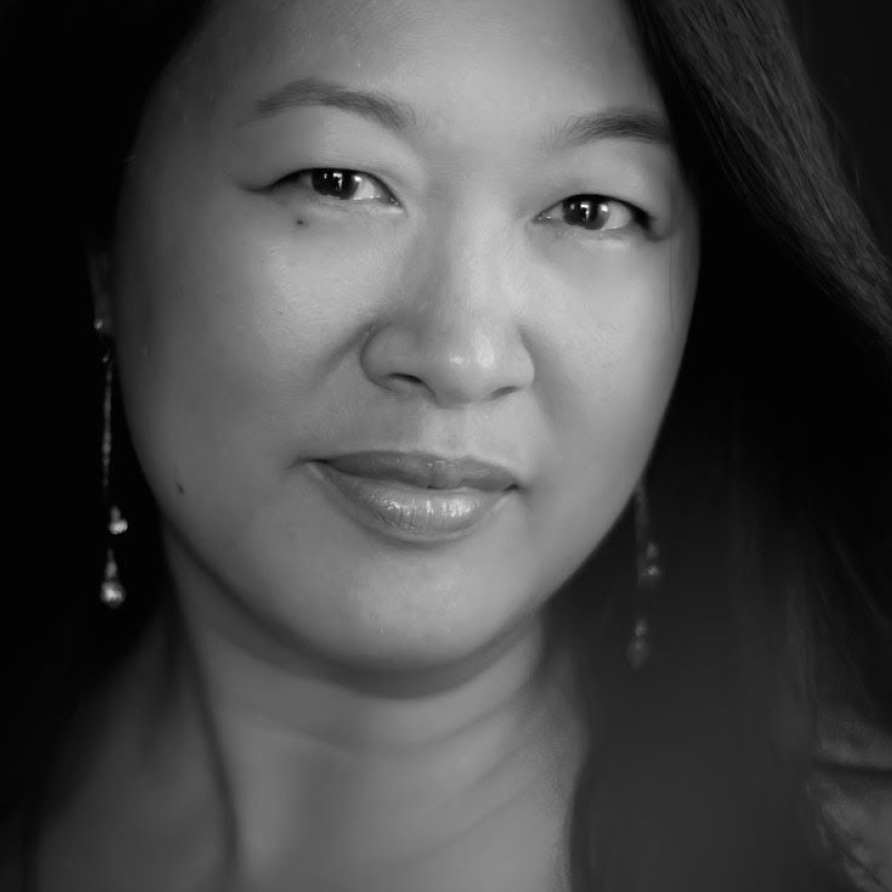 Writing has always been my saving grace. I grew up an introverted only child, and sometimes, I could only communicate through my writing.
Writing has always been my saving grace. I grew up an introverted only child, and sometimes, I could only communicate through my writing.
My love of writing grew over the years, especially when I went full-force into zine creation in highschool. I loved the fact that I could create, print and distribute my own words, without dilution, to the masses. It became my form of therapy, to salve the scars left behind from very real pre-existing generational trauma to also new trauma.

 How would you feel if I told you that Jeff Bezos got his groceries for free from a food bank?
How would you feel if I told you that Jeff Bezos got his groceries for free from a food bank?  A group of BIPOC* fundraisers and nonprofit professionals began a collaboration to build a movement for racial and economic justice, sharing dreams of a world beyond capitalism and the nonprofit industrial complex. To gauge perceptions of nonprofit fundraising, this group distributed a survey in May 2019. Intended to highlight the thoughts and experiences of fundraisers and presented through a series of infographics, here are some findings from over 2,000 fundraisers and nonprofit professionals surveyed.
A group of BIPOC* fundraisers and nonprofit professionals began a collaboration to build a movement for racial and economic justice, sharing dreams of a world beyond capitalism and the nonprofit industrial complex. To gauge perceptions of nonprofit fundraising, this group distributed a survey in May 2019. Intended to highlight the thoughts and experiences of fundraisers and presented through a series of infographics, here are some findings from over 2,000 fundraisers and nonprofit professionals surveyed.
 I have been working to raise funds for nonprofits for almost twelve years. The majority of that time has been spent raising money for public schools in New Orleans, Louisiana. I’ve bounced around to several organizations over the years, never spending more than three years at any one place because I couldn’t put up with staying longer than that.
I have been working to raise funds for nonprofits for almost twelve years. The majority of that time has been spent raising money for public schools in New Orleans, Louisiana. I’ve bounced around to several organizations over the years, never spending more than three years at any one place because I couldn’t put up with staying longer than that.  My parents immigrated to the United States from India in the 1970s and chose to purchase their first home in a suburban municipality west of St. Louis, Missouri. To both the south and west of our subdivision were mostly white communities — to the north and east, mostly Black and immigrant Asian and Pacific Islander communities. If you’ve learned anything about St. Louis in the six years since Mike Brown’s murder, you are familiar with the deep segregation of our region and its toxic, implicit commitment to the Black-white binary.
My parents immigrated to the United States from India in the 1970s and chose to purchase their first home in a suburban municipality west of St. Louis, Missouri. To both the south and west of our subdivision were mostly white communities — to the north and east, mostly Black and immigrant Asian and Pacific Islander communities. If you’ve learned anything about St. Louis in the six years since Mike Brown’s murder, you are familiar with the deep segregation of our region and its toxic, implicit commitment to the Black-white binary.  When Trump was elected in 2016, I was a director of development in New York City. The day after the election, as I sat on my couch at home in a shroud of depression, I sent a communique out to my organization’s full email list, calling for cohesion, mutual support, and compassionate attention to the Black, Brown, and immigrant youth that the organization worked to support.
When Trump was elected in 2016, I was a director of development in New York City. The day after the election, as I sat on my couch at home in a shroud of depression, I sent a communique out to my organization’s full email list, calling for cohesion, mutual support, and compassionate attention to the Black, Brown, and immigrant youth that the organization worked to support. Hi, Philanthropy! You don’t recognize me, because you never see me, but I write a lot of the proposals you read. I don’t normally call attention to myself, but I’m here, and I need to tell you that I’m exhausted. In truth, I’ve been burnt out for years. While I find satisfaction in working for great causes, organizations, and communities, working with you wears me down bit by bit.
Hi, Philanthropy! You don’t recognize me, because you never see me, but I write a lot of the proposals you read. I don’t normally call attention to myself, but I’m here, and I need to tell you that I’m exhausted. In truth, I’ve been burnt out for years. While I find satisfaction in working for great causes, organizations, and communities, working with you wears me down bit by bit. In annual reports and donor lists around the country, there’s always a section for anonymous giving. It’s accepted as a norm in the fundraising world that some donors elect to be anonymous for one reason or another. The Association of Fundraising Professionals (AFP) outlines confidentiality as a right in The Donor Bill of Rights. However, recent scandals in the past year surrounding anonymous gifts raises the question whether anonymous giving helps or hurts the work of philanthropy to create a more equitable and just world.
In annual reports and donor lists around the country, there’s always a section for anonymous giving. It’s accepted as a norm in the fundraising world that some donors elect to be anonymous for one reason or another. The Association of Fundraising Professionals (AFP) outlines confidentiality as a right in The Donor Bill of Rights. However, recent scandals in the past year surrounding anonymous gifts raises the question whether anonymous giving helps or hurts the work of philanthropy to create a more equitable and just world.  My journey to accessibility in the arts started more than 20 years ago, when I first moved to Seattle from the East Coast. While in Los Angeles on vacation, I went to see “Titanic,” which had just come out in movie theaters. For the first time, I used a captioning device that fit into the cup holder of my seat, allowing me to read the words being spoken onscreen. It was exhilarating: I was finally able to fully understand the dialogue on the big screen.
My journey to accessibility in the arts started more than 20 years ago, when I first moved to Seattle from the East Coast. While in Los Angeles on vacation, I went to see “Titanic,” which had just come out in movie theaters. For the first time, I used a captioning device that fit into the cup holder of my seat, allowing me to read the words being spoken onscreen. It was exhilarating: I was finally able to fully understand the dialogue on the big screen.